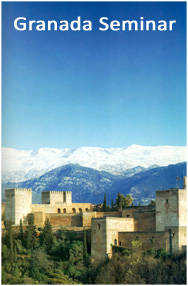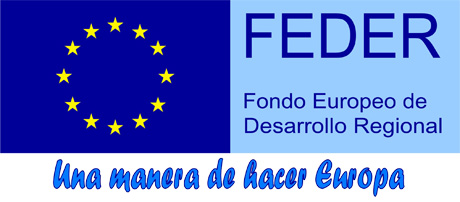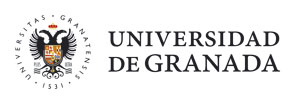15th Granada Seminar
|
September 17-20, 2019 in Facultad de Ciencias, Universidad de Granada, Spain |
|
|
Organized by: Institute Carlos I for Theoretical and Computational Physics, University of Granada Sponsored by: |
Stochastic and Collective Effects in Neural Systems
Biological aspects, Modeling, Dynamics, Networks, Function and Applications
The aim of this meeting is to bring together scientists interested in Neural Systems and their statistical and collective effects from real experiments, theoretical and computational models to applications
Main speakers:
-
Roberto Barrio, Universidad de Zaragoza (Spain): Insect movement gaits: neuron model, CPG and pattern bifurcation
-
Ginestra Bianconi, Queen Mary University of London (UK): Emergent Hyperbolic Network Geometry and Frustrated Synchronization
-
Jesús Cortés, Ikerbasque (Spain): Brain networks as a predictor of aging along lifespan
-
Lucilla de Arcangelis, University of Campania "Luigi Vanvitelli" (Italy): The role of structure on neuronal activity: Recovery after damage in neuronal networks
-
Jose Maria Delgado, Universidad Pablo de Olavide (Spain): Learning as a functional state of the brain
-
Andrea Gabrielli, Istituto dei Sistemi Complessi (Italy): Brain Network Topology Maps Schizophrenia Dysfunctional Substrates
-
Andre Longtin, University of Ottawa (Canada): Detecting and Learning in Noisy Neurons: From Dendrites to Spontaneous Movements
-
Joaquin Marro, Universidad de Granada (Spain): Is the Mind just an assembly of Phase Transitions?
-
Jorge F. Mejías, University of Amsterdam (The Netherlands): Mechanisms of distributed working memory in the brain
-
Cyriel Pennartz, University of Amsterdam (The Netherlands): Predictive representations and population coding in visual and multisensory systems
-
Dietmar Plenz, NIH National Institute of Mental Health (USA): Neuronal avalanches and critical network dynamics in the brain
-
Ander Ramos, Tecnalia (Spain): Neural Interfaces: can we use them as rehabilitation therapy?
-
Alex Roxin, CRM Barcelona (Spain): A network model of place-cell turnover in CA1
-
Mavi Sánchez-Vives, Institut d'investigacions Biomèdiques (Spain): Across Brain States and Complexity levels of the Cerebral Cortex Network
-
Samir Suweis, Universita di Padova (Italy): Simple (but not too simple) models to investigate complex brain dynamics
Contact us at: cphys@onsager.ugr.es













